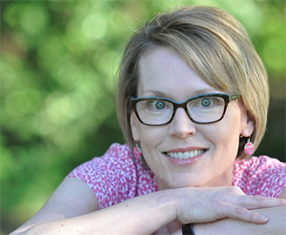Shyness
What Is Equanimity?
Equanimity helps you learn that you're not stuck.
Posted January 5, 2014

A few weeks ago I listened to a podcast with Sharon Salzberg, best-selling author of Real Happiness and her new book Real Happiness at Work, talking about “equanimity.” Now there’s a deep-sounding word that I’ve heard, but never really understood. Leave it to Sharon to explain a big concept in a practical way, with a touch of humor and wit thrown in for good measure.
The part of her talk that has stayed with me the most is this story she told. Imagine that there is a quite elderly person sitting in a park watching children play. Now this is someone who has seen a thing or two—someone who has lived a full, seasoned life. This quite elderly person sees a child who is playing in the sand with a dump truck and a shovel. The shovel breaks and the child “freaks out”, cries, etc. Now how does this quite elderly person, with the wisdom of these years, react? Does he or she go up to the child and say, “What are you crying about. Wait until you have a real problem.” Of course not. That would be cruel. On the flip side, does this quite elderly person fall down on the ground sobbing right along with the child? Again, no. The quite elderly person has the perspective to know that it's just a toy shovel. Shovels break. That is the nature of life. (By the way, Sharon really did keep saying “this quite elderly person.”)
She said that sometimes people mistakenly think that equanimity is detached and passive. But it’s not. If you are going to tell someone your problems, do you want someone to get as upset as you are? No. If that happened, you’d think to yourself, “Whoa, this problem really must be bad.” You want someone to have BOTH compassion and understanding AND the perspective that this situation is not forever. You want someone to give you a sense that there are options and possibilities…not that you’re stuck.

Anyone who has read my books or blog posts, knows that I’m extremely sensitive. It’s a part of myself that I’ve often not liked and struggled to accept. One particular aspect of this sensitivity that I’ve HATED is that I cry easily. It can be very annoying to cry at inopportune moments, or to cry for so long and hard that your eyes are puffy and red for hours afterward.
In a way, I’ve been the kind of person who really might cry at a broken shovel. Thankfully, I've grown enough this past year that I'm not going to judge myself for it. It’s just something to notice and work on.
Since I’ve heard the story about the child and the broken shovel, I’ve been trying to take the perspective of the quite elderly person who has wisdom and perspective. I’ve adopted the phrase, “This is hard, but it’s not horrible.” To me, that phrase validates my experience, whatever it is. Yes, I’m sad. Or yes, I’m in pain. But that doesn’t mean it will last forever. And it doesn’t mean I can’t handle it.
I am super excited because twice now I’ve been able to stop myself from a full-blown sob fest by remembering this story and saying these words to myself… “hard, but not horrible”. I know that stopping myself from crying is not the goal, per se (although having a little bit of control over my feelings would be nice). The goal is to see possibility. The goal is to sense spaciousness. The goal is to develop balance.
And of course, as I’ve said the words to myself, “It’s hard but not horrible,” I’ve said them in a gentle tone of voice; perhaps the tone of voice that a quite elderly person would use.
You can hear the full podcast here, which was recorded live at The Interdependence Project in NYC in 2012. You can tell it's New York. You can hear sirens and horns honking in the background of the talk.
Sharon Salzberg's website is here.
I highly recommend her book, Real Happiness: The Power of Meditation, and her newest book is on my to-read list, Real Happiness at Work.
Let’s Keep in Touch!

Let’s Keep in Touch!
To subscribe to my posts via e-mail, click here. Join me on Twitter and Facebook.
I also write at The Self-Compassion Project and Shyness Is Nice.
To read more of my posts on this blog, click here.
I am the co-author of Dying of Embarrassment, Painfully Shy, and Nurturing the Shy Child. Dying of Embarrassment: Help for Social Anxiety & Phobia was found to be one of the most useful and scientifically grounded self-help books in a research study published in Professional Psychology, Research and Practice. I’ve also been featured in the award-winning PBS documentary, Afraid of People. Greg and I also co-authored Illuminating the Heart: Steps Toward a More Spiritual Marriage.
Photo Credit: Matt McGee, flickr, CC and Pink Sherbet Photography


